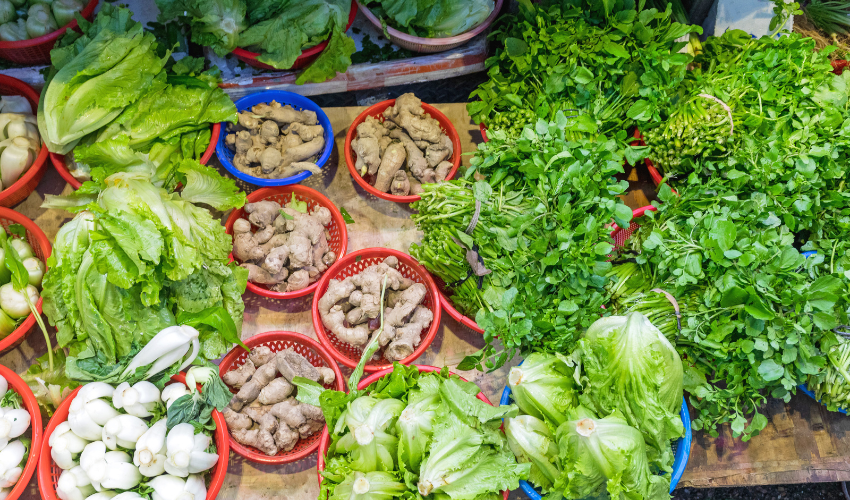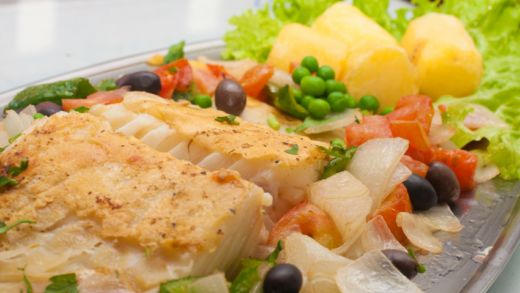In this article, we will be discussing the top vitamin K foods that you can add to your diet to reap their numerous benefits. Whether you’re looking to improve your bone density, maintain healthy skin, or reduce your risk of heart disease, incorporating vitamin K foods into your meals is a smart and simple way to achieve these goals.

Leafy Green Vegetables
Leafy green vegetables are one of the richest sources of vitamin K, making them a must-have in your diet. They contain both vitamin K1 and K2, with kale, spinach, collard greens, and broccoli ranking the highest in vitamin K content. A single cup of cooked spinach contains over 800% of your daily recommended vitamin K intake.
How to Add Leafy Greens to Your Meals
- Add a handful of spinach or kale to your smoothies
- Sauté some collard greens with garlic and onions for a tasty side dish
- Make a refreshing salad with mixed greens, chopped veggies, and a sprinkle of feta cheese
Cruciferous Vegetables
Cruciferous vegetables like cabbage, Brussels sprouts, and cauliflower are not only low in calories but also rich in vitamin K. They are particularly high in vitamin K1, which is essential for blood clotting and bone health.
Subheading 2: How to Add Cruciferous Vegetables to Your Meals
- Roast some cauliflower with your favorite spices for a nutritious side dish
- Make a flavorful coleslaw with shredded cabbage and carrots
- Steam some Brussels sprouts and serve them with a drizzle of olive oil and balsamic vinegar
Fruits
While most fruits do not contain high amounts of vitamin K, there are a few exceptions. These include kiwi, avocado, and grapes, which are all rich in vitamin K1.
How to Add Fruits to Your Meals
- Top your morning toast with sliced avocado and a sprinkle of salt and pepper
- Add some kiwi to your yogurt or smoothie for a refreshing snack
- Snack on some grapes for a quick and healthy energy boost
Meat and Dairy Products
Meat and dairy products are also good sources of vitamin K, particularly vitamin K2. Chicken, beef liver, and egg yolks are all rich in vitamin K2, which is essential for bone health.
How to Add Meat and Dairy Products to Your Meals
- Make a hearty beef liver pate with garlic and herbs
- Grill some chicken breasts and serve them with a side of roasted vegetables
- Whip up some scrambled eggs with spinach and feta cheese for a protein-packed breakfast
FAQs:
How much vitamin K should I consume daily?
The recommended daily intake of vitamin K is 120 mcg for men and 90 mcg for women.
Are there any side effects of consuming too much vitamin K?
While vitamin K is generally safe, consuming too much of it can interfere with blood-thinning medications like warfarin.
Can vitamin K supplements replace vitamin K-rich foods?
While vitamin K supplements are available, it is always best to obtain nutrients from natural food sources. Consuming a balanced and varied diet that includes vitamin K-rich foods is the safest and most effective way to ensure adequate vitamin K intake.
Are there any food combinations that can increase the absorption of vitamin K?
Consuming vitamin K-rich foods with healthy fats like olive oil or avocado can help enhance the absorption of vitamin K.
Can vitamin K help prevent osteoporosis?
Yes, vitamin K plays a vital role in bone metabolism and can help improve bone density, reducing the risk of osteoporosis.
Conclusion:
Incorporating vitamin K foods into your diet is essential for optimal health and wellness. Whether you prefer leafy greens, cruciferous vegetables, fruits, or animal products, there are many options to choose from. By consuming vitamin K-rich foods, you can improve your bone health, support healthy skin, and reduce the risk of heart disease. Start by adding a few of these vitamin K foods to your meals today and enjoy their numerous benefits.























